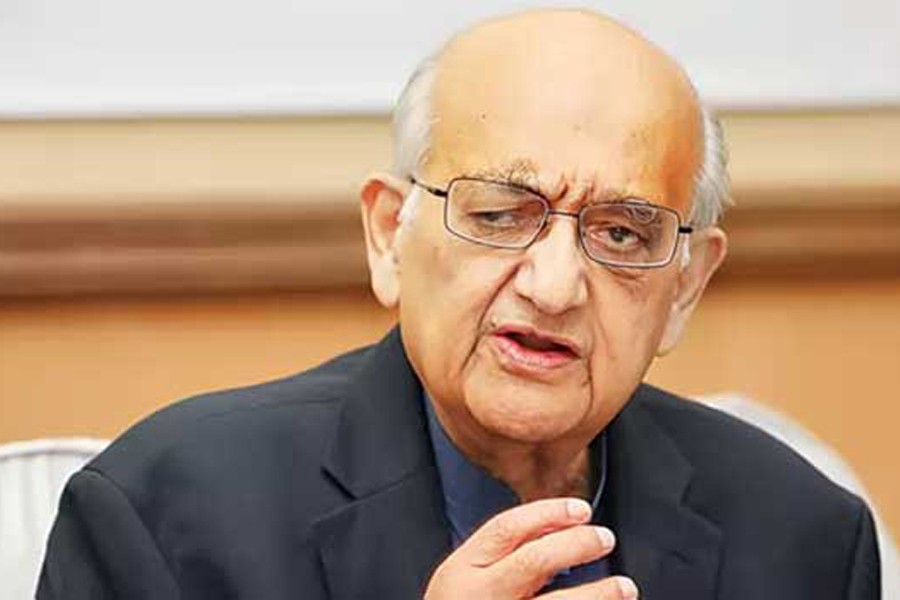
Published :
Updated :

Renowned economist Dr Rehman Sobhan Tuesday said there is a fundamental difference between political and interim governments.
Dr Sobhan, also the Centre for Policy Dialogue (CPD) chairman, said the present interim government, formed after a mass uprising, is not bound to any authority, whereas a political government remains accountable to many, including voters.
He made the observations at the concluding session of a conference titled "Recommendations by the Task Force on Re-Strategising the Economy" and organised by the CPD at an auditorium in the capital.

Chairman of the taskforce KAS Murshid moderated the concluding session titled "Institutional Governance and the Way Forward" while CPD Distinguish Fellow Prof Rounaq Jahan, Ganosamhati Andolon Central Coordinator Zonayed Saki, and former secretary and chairman of the Public Administration Reform Commission Abdul Muyeed Chowdhury participated as discussants.
Dr Sobhan said the taskforce must submit its recommendations to the interim government, which would review those. "An elected government in the future can then decide whether to implement the recommendations or not."
One of the taskforce members, Dr Syed Akhtar Mahmud, presented the keynote, highlighting four key agendas essential for a dynamic economy - attracting investments, enhancing market competition, providing effective business incentives, and strengthening business regulations.
The keynote recommended streamlining investment promotion by positioning the Bangladesh Investment Development Authority (BIDA) as the core agency, with the Small and Medium Enterprise Foundation, Bangladesh Economic Zones Authority (BEZA), Bangladesh Hi-Tech Park Authority, Public Private Partnership Authority, and others working in coordination with it.
Dr Mahmud also proposed making the incentive regime more effective by introducing performance-based discipline.
On regulatory reforms, the keynote advocated systematic approaches rather than the ad hoc measures that have been in place since independence.
Dr Iftekharuzzaman, executive director of Transparency International Bangladesh (TIB), said between 2012 and 2024, only 5.0 per cent of bidders controlled 42 per cent of the public projects, amounting to Tk 6.0 trillion, despite the introduction of the e-GP system.
He claimed that while the fascist regime was ousted on August 5 last year, extortion continues under new faces.
Murshid pointed out that the existing judicial system encourages corruption in business. He stressed the urgent need for judicial reforms to hold unscrupulous businesses accountable.
ardad@gmail.com


 For all latest news, follow The Financial Express Google News channel.
For all latest news, follow The Financial Express Google News channel.